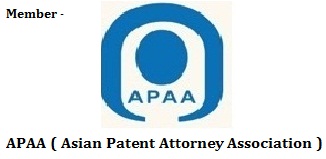Hindustan Unilever stops Tata from patenting technology for water purifier

Hindustan Unilever (HUL), which owns the brand Pureit, has won a pre-grant opposition against Tata Chemicals, which sells water purifiers under the brand Tata Swach. The patent office rejected Tata Chemicals’ application for an invention related to a water purifier based on the pre-grant opposition filed by HUL.
In 2012, Tata Chemicals was successful at the Intellectual Property Appellate Board (IPAB) in revoking one of HUL’s patents related to water purifier.
In the latest round, Tata Chemicals along with Tata Consultancy Services, had filed a patent application on July 8, 2008, for the invention titled ‘A Water Purifier’. And, HUL filed a pre-grant opposition under the Patents Act 1970 on January 13, 2011.
Based on the argument from both sides and documents submitted by the companies, the assistant controller of patents & designs, Delhi, in an order dated January 2, 2020, held that the claims lack inventive steps under certain sections of the Act.
The controller accepted HUL’s pre-grant representation. The order also observed that the invention is obvious to a person skilled in that particular technology.
Legal sources said that the assistant controller refused Tata Chemicals’ patent application. This was in view of a prior art (information/document already known) which Tata Chemicals depended on to get the HUL’s patent revoked earlier. The patent officer also relied extensively on the observations of the IPAB in the order which rejected the patent of HUL.
IPAB, in its order in 2012, had said that the technology used by Pureit was not new.
“Also, the expert evidence used by Tatas against HUL, in the earlier case, was used to hold the Tata invention as obvious,” said S Majumdar of S Majumdar & Company, who appeared for HUL in the pre-grant opposition. Essenese Obhan, of Obhan & Associates appeared for Tata Chemicals.
Tata Chemicals, in its patent specification filed with the patent office, had said that there is a need for a water purification device that is simple, a gravity-driven one that is inexpensive, easy to use and effective in removing bacterial contamination from drinking water.
The invention claimed by Tata Chemicals include a water purifier which could be connected to a water storage vessel, and having two chambers and purification materials for improved efficacy.
The pre-grant opposition was considered primarily on HUL’s grounds that the invention has prior claiming and lacks inventive step. HUL argued that the features of the alleged invention are present in the documents available.
The patent dispute between the water purifier manufacturers has been going on for several years now. Earlier, another patent of HUL, for ‘a gravity-fed water purification system,’ was revoked by the patent office in 2012. This was done based on a petition filed by Eureka Forbes, part of the Shapoorji Pallonji Group.
According to a report by TechSciResearch, India’s residential water purifier market was valued at $391.4 million in 2019. It is expected to grow at a compound annual growth rate of 13.3 per cent to touch $818 million by 2024. This will be possible owing to the growing concerns on water-borne diseases, increasing water pollution, and rising disposable income. ( source – Business Standards ) .


